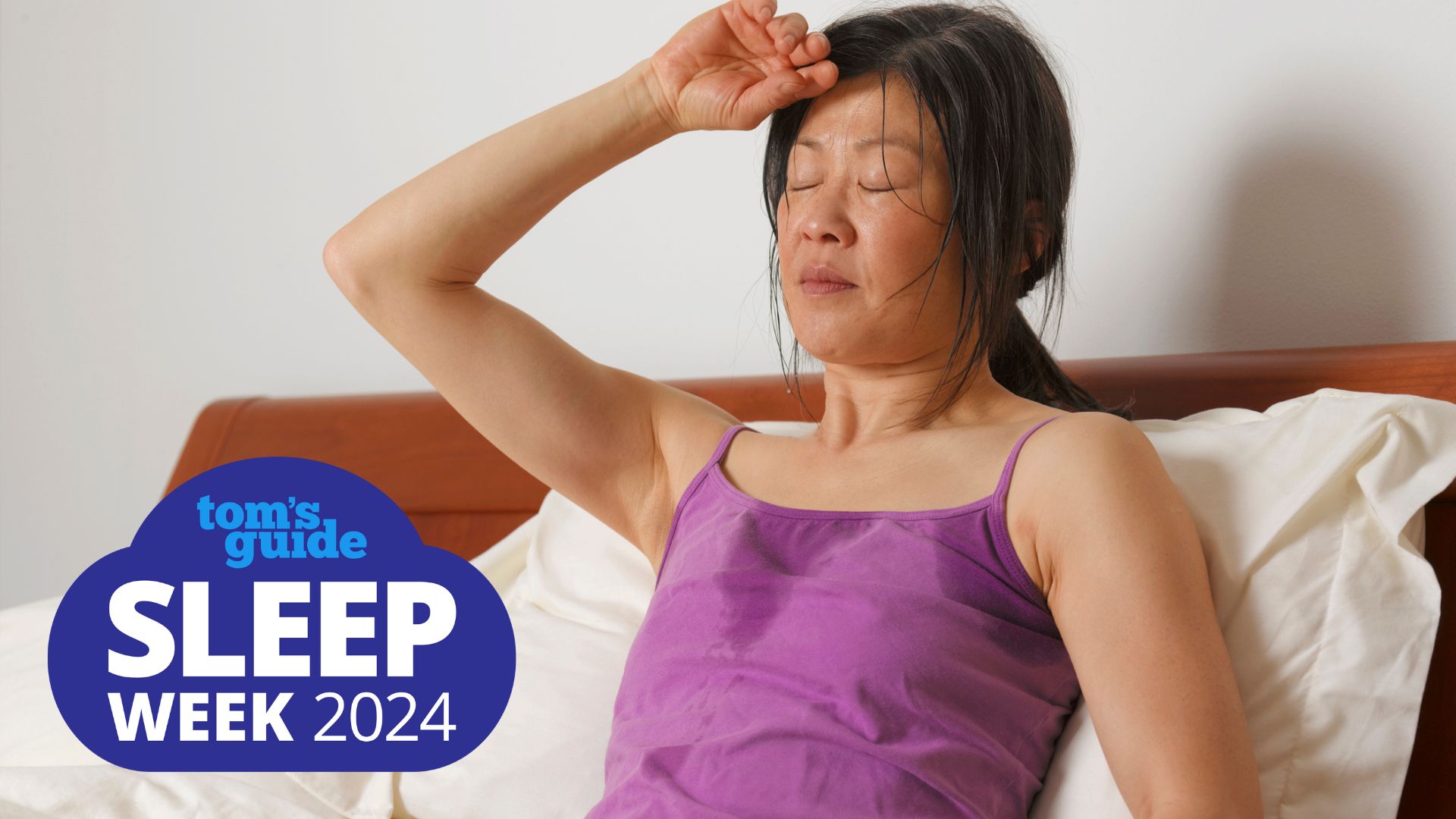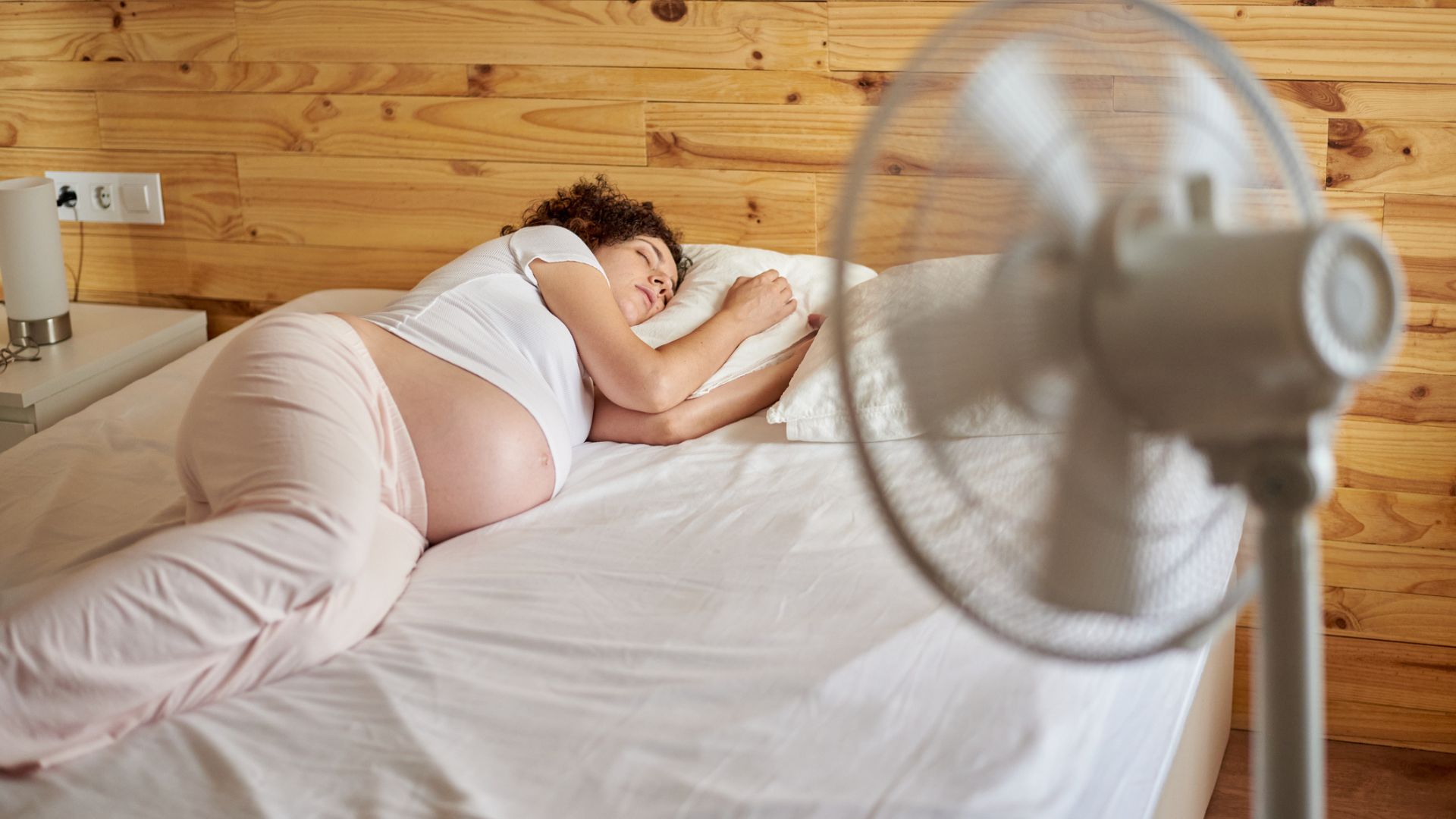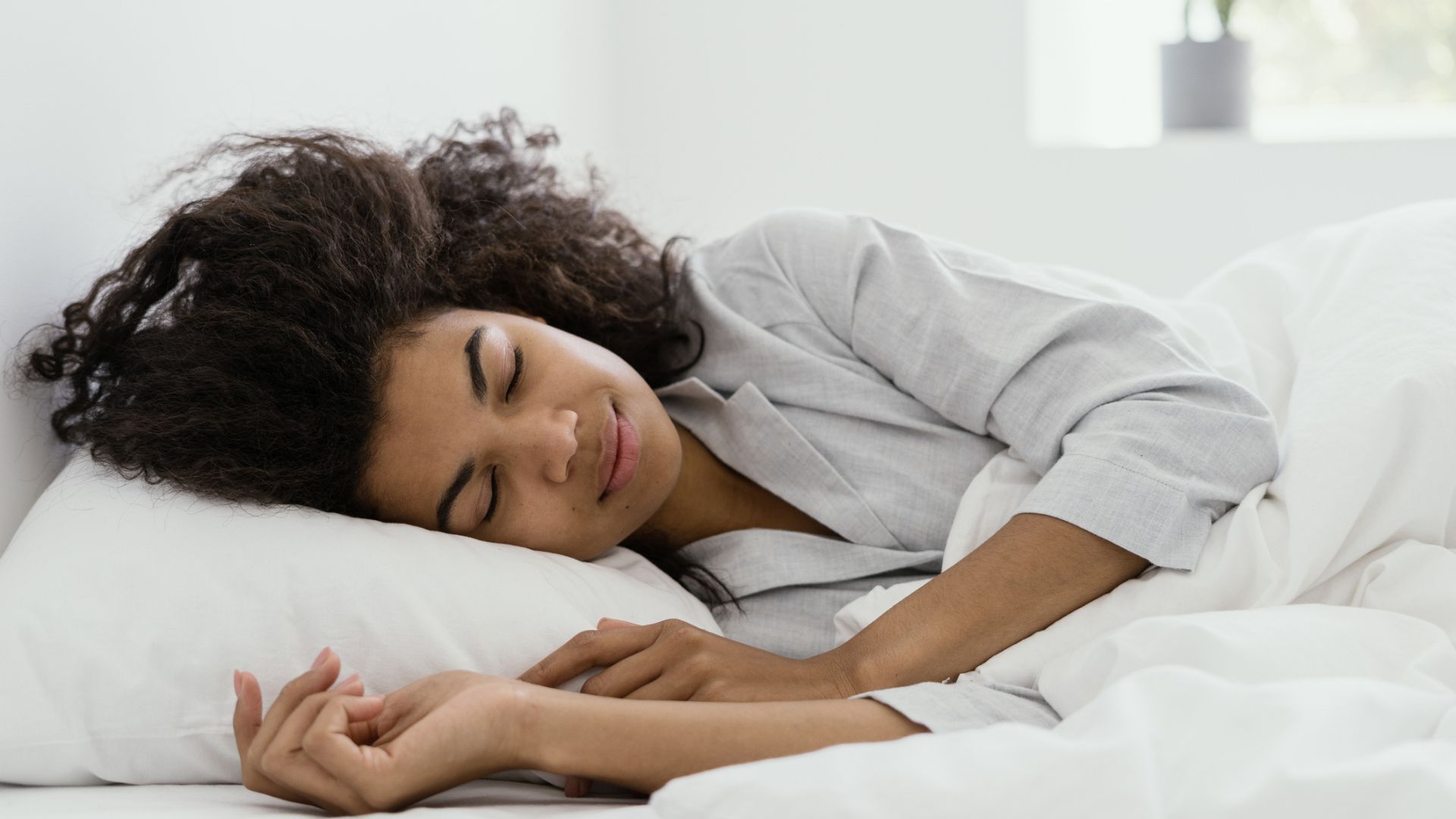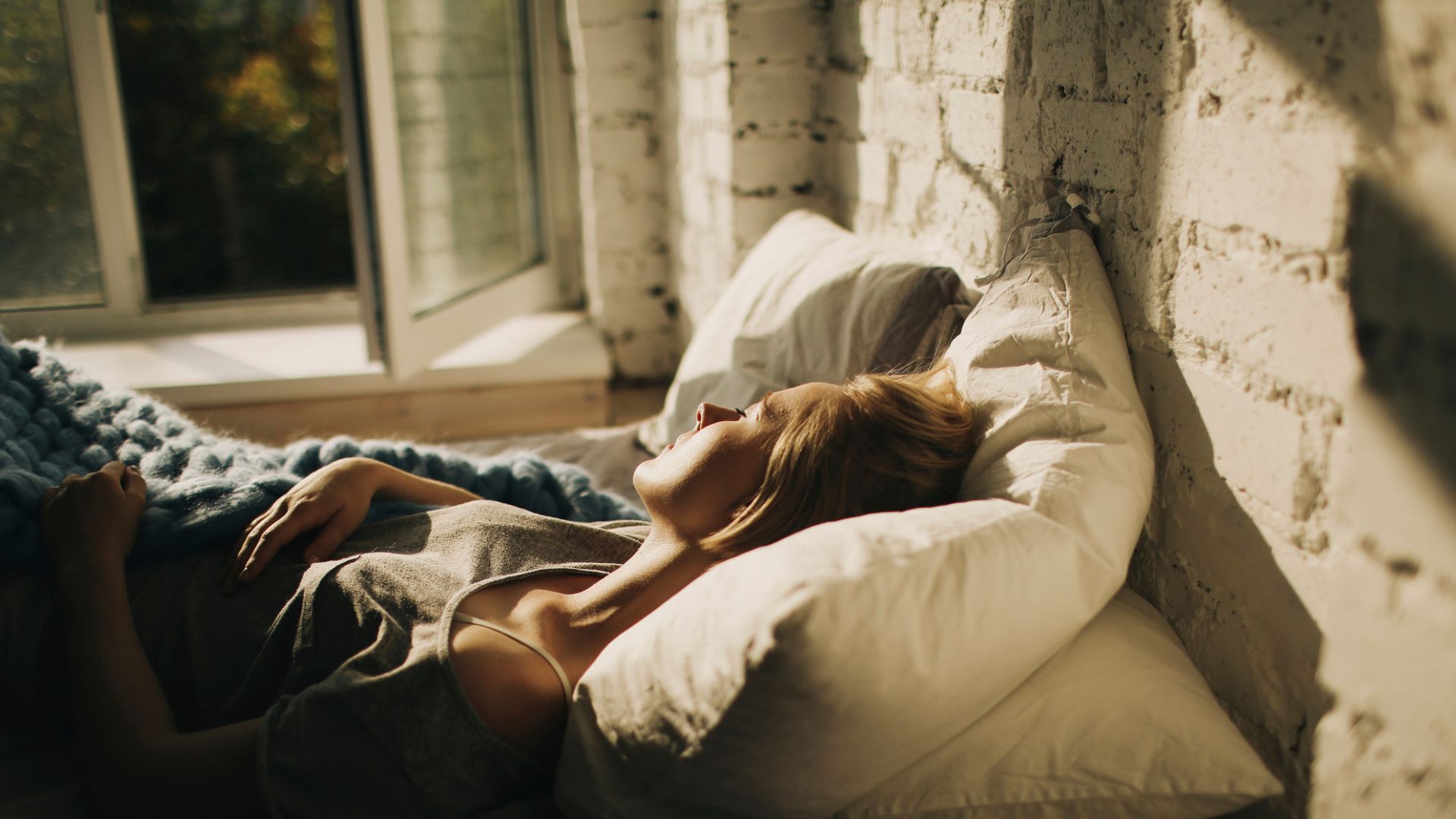Why do I sweat so much in my sleep? A sleep scientist answers
Why you’re sweating in your sleep and what you can do about it

It could be hot weather, hot flashes or illness, but certain periods of our lives are often punctuated by hot, sweaty and sleepless nights. But if you’re finding that you’re sweating more than normal without any discernible reason, you might be left wondering — why am I sweating so much in my sleep?
While many of the best mattresses excel in temperature regulation, helping to keep you cool and comfortable all night long, some mattresses will trap heat, which can cause you to wake up in a pool of your own sweat. But beyond replacing your mattress, what are the other common causes of nighttime sweating?
To coincide with Sleep Awareness Week 2024, we put that question to Theresa Schnorbach, a leading Sleep Expert at Emma, The Sleep Company. “Sweating in the night can have a number of causes,” says Dr Schnorbach. “Night sweats are a common menopausal symptom but can also be caused by some medicines or alcohol.”
Let’s take a closer look at the common causes of night sweats, plus 5 things you can do to keep your cool at night.
- Read more: Why have I started snoring? A doctor responds
- Read more: Why do I grind my teeth in my sleep? A leading neuroscientist answers
Nectar Mattress: from $349 at Nectar Sleep
This Sleep Awareness Week, you can save up to 40% off the Nectar Memory Foam, our top pick of the best mattresses for people who want a breathable and supportive memory foam bed to ease aches and pains. A queen is now reduced to $649, with a lifetime warranty and a year's sleep trial.
Why do I sweat so much in my sleep?
Sweating is an important and healthy bodily function that helps to cool our bodies as well as expelling toxins and other waste products from our systems. It is normal to lose approximately 25ml of moisture an hour while we sleep, which is why it’s important to protect your mattress with one of the best mattress protectors.
In contrast, night sweats can be characterized as sweating so much that your bed clothes and sheets become saturated with sweat, subsequently waking you up and disturbing your sleep. There are certain health conditions and circumstances that can cause night sweats. They are as followed:
Common causes of sweating in your sleep
Medication
Certain medications, including antidepressants, steroids and certain cancer treatment, can cause night sweats. This is known as drug-induced hyperhidrosis, which is more commonly known as excessive sweating.
Sign up to get the BEST of Tom's Guide direct to your inbox.
Get instant access to breaking news, the hottest reviews, great deals and helpful tips.
Hormone fluctuations

Fluctuations in reproductive hormones such as estrogen and progesterone can cause night sweats during the menstrual cycle, menopause and pregnancy. Menopause is one of the most common causes of night sweats, more commonly referred to as hot flashes.
Stress and anxiety
“Stress and anxiety can also lead to nighttime sweating,” says Dr Schnorbach. This is because the body’s stress response triggered by feelings of stress and anxiety includes a racing heart, which can lead to increased sweating while we sleep.
Alcohol consumption

Alcohol consumption, whether it’s alcohol dependency, withdrawal, or just one alcoholic beverage, can cause increased night time sweating. Alcohol consumption widens our blood vessels, which can cause sweating, while a symptom of alcohol withdrawal is increased night sweats.
Sleep apnea
Along with loud snoring and feeling lethargic despite clocking up an adequate amount of sleep, night sweats are a common symptom of sleep apnea. This is because the body’s stress response that wakes sleep apnea sufferers in order to start breathing again also leads to night time sweating.
Illness
Fevers and infections experienced during bouts of illness can lead to increased nighttime sweating. When battling illness, our core body temperatures rise naturally, which can trigger a response from our sweat glands. This is your body's way of keeping you cool despite the increase in temperature.
5 ways to manage nighttime sweats
Dr Schnorbach shares five ways we can manage increased nighttime sweating, helping us to keep cool and stay asleep all night.
1. Cool your body's pulse points
Your body’s pulse points are areas where your blood flows closests to the surface of your skin, such as your wrists, temples, or side of your neck. “Wrap an ice pack cloth or a towel (never apply an ice directly to your skin), hold it against these pulse points to help you quickly cool off,” says Dr Schnorbach.
“Similarly, you can also use, hot-water bottle filled with cold water, a cool, damp flannel, or try splashing cold water on these pulse points. Your body's blood vessels will react to the cool sensation and instantly bring your core temperature down.” However, avoid your feet and hands, as this can prevent you from falling asleep, she explains.
2. Wear lightweight pajamas

“If you’re someone that can’t sleep without some kind of clothing on, wearing pajamas of natural cotton is your best bet as the material actually helps your skin breathe, while absorbing your sweat during the night,” says Dr Schnorbach.
3. Take a lukewarm shower
“While a freezing cold shower before may feel like a good way of cooling your body before bed, I suggest opting for one that is lukewarm instead,” says Dr Schnorbach. “A shower that is too cold will actually cause the body to warm up again to re-balance the body temperature and could therefore exacerbate your sweating.”
4. Evaluate your sleep environment
“I would also suggest that you examine your sleep environment,” says Dr Schnorbach. “A cooler bedroom can help to facilitate a drop in core body temperature, providing you with a deeper sleep.” Sleeping with your window open can provide your bedroom with some much-needed ventilation.

Studies show that the best temperature for sleep is between 20 and 25 °C (68 and 77 F). However, as everyone’s bodies are acclimated to different temperature environments, Dr Schnorbach recommends that your bedroom temperature is set to whatever you find comfortably cool, which is generally around 15-19°C (59°F - 66.2°F) for adults.
5. Invest in a cooling mattress
“Your bed and bedding are another feature of your sleep environment that could be contributing to night sweats,” says Dr Schnorbach. “Excess heat can be eased by the thermoregulating layers in cooling mattresses which help to redistribute body heat. Moreover, mattresses made from materials with enhanced breathability allow more air to flow, helping to boost this cooling power.”
When night sweats are cause for concern
Night sweats are unpleasant, but usually harmless. However, if your night sweats are regularly preventing you from getting adequate sleep, Dr Schnorbach recommends seeking advice from a doctor. Adults require between 7 - 9 hours of sleep in order to function optimally, so addressing the cause of your night sweats — or finding a solution to them — is recommended if your night sweats are standing in the way of your sleep.
“In order to sleep, our body’s core temperature needs to cool down, dropping by approximately 0.5°C [32.9°F] to fall asleep and by another ~1°C [33.8°F] to maintain deep sleep,” explains Dr Schnorbach. “Sweating in the night can therefore mean disrupted sleep which can have a knock on impact for both your physical and mental health.”

Theresa Schnorbach is a psychologist and sleep scientist, specialized in Clinical Psychology and Cognitive Neuropsychology. She has completed a post-graduate training in Cognitive Behavioural Therapy for Insomnia (CBT-I) with the German Sleep Society (Deutsche Gesellschaft für Schlafforschung und Schlafmedizin (DGSM)), endorsed by the European Research Society.

Nicola is the Sleep Editor at Tom’s Guide, where she helps steer the mattress and sleep content published on Tom’s Guide, including our Best Mattress for Back Pain buying guide. With a career in journalism spanning the best part of two decades, Nicola brings experience to the team and the knowledge of what makes a great article, whether that’s a how-to mattress cleaning feature, a deep dive into melatonin gummies, or an in-depth mattress review. As a sleep editor, few better understand how important a decent mattress is to the overall quality of our sleep, and precisely how our sleep impacts our physical and mental health. As well as tackling the vast topic of sleep, Nicola joins the raft of expert mattress specialists at Tom’s Guide, who test and compare a wide range of mattresses in order to guide readers towards the very best options on the market.


